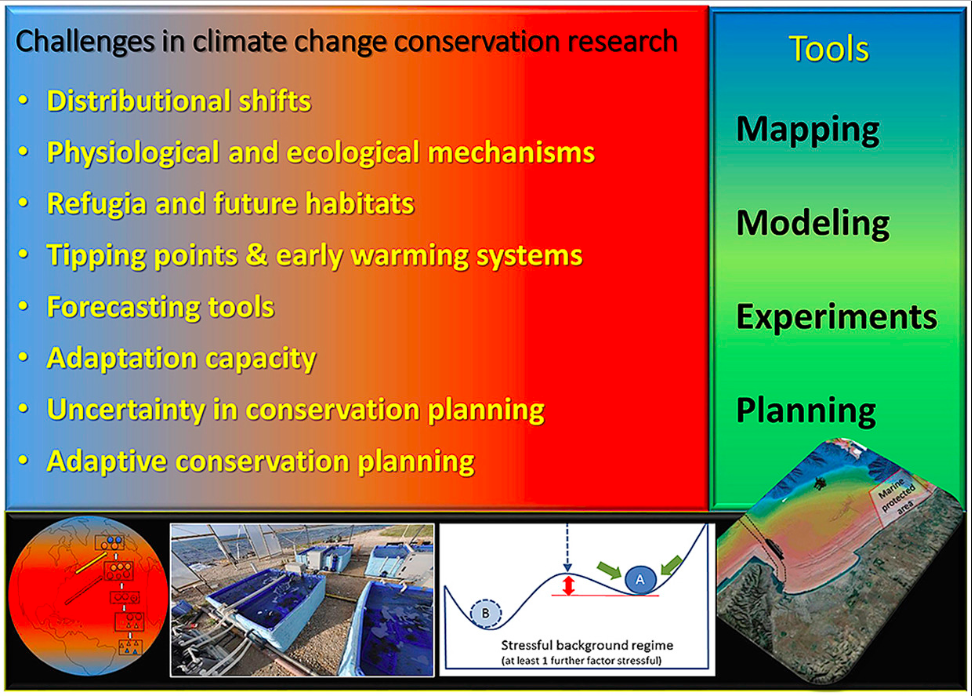Graphical abstract
Abstract
Rapid anthropogenic climate change is a major threat to ocean biodiversity, increasing the challenge for marine conservation. Strategic conservation planning, and more recently marine spatial planning (MSP) are among the most promising management tools to operationalize and enforce marine conservation. As yet, climate change is seldom incorporated into these plans, potentially curtailing the effectiveness of designated conservation areas under novel environmental conditions. Reliable assessment of current and future climate change threats requires the ability to map climate-driven eco-evolutionary changes and the identification of vulnerable and resistant populations. Here we explore the heretofore largely unrecognized value of information gained from physiological, ecological and evolutionary studies to MSP under ongoing climate change. For example, we explore how climate threats do not necessarily follow latitudinal gradients, such that both risk hotspots and refugia occur in mosaic distributions along species ranges – patterns that may be undetectable without knowledge of biological vulnerabilities at regional and local scales. Because co-occurring species can exhibit markedly different vulnerabilities to the same environmental changes, making ecological predictions requires, when possible, measuring the fundamental niches of key species (e.g., with the use of thermotolerance experiments). Forecasting also requires development of tools to identify the likelihood of community-level thresholds or tipping points (e.g., with the use of near-real world mesocosms), and assessment of the potential of populations for adaptation (e.g., with common garden experiments). Such research will facilitate better predictive models for the fate of populations, species, ecosystems and their functions. Ultimately, unfolding the complexity of the processes underlying climate change impacts will facilitate quantifying and reducing uncertainty in spatial planning decision processes and will enable the development of practical tools to validate adaptive conservation strategies.
Rilov G, Mazaris AD, Stelzenmüller V, Helmuth B, Wahl M, Guy-Haim T, Mieszkowska N, Ledoux J-B, Katsanevakis S (2019) Adaptive marine conservation planning in the face of climate change: What can we learn from physiological, ecological and genetic studies?, Global Ecology and Conservation, 17, e00566. doi: 10.1016/j.gecco.2019.e00566.
